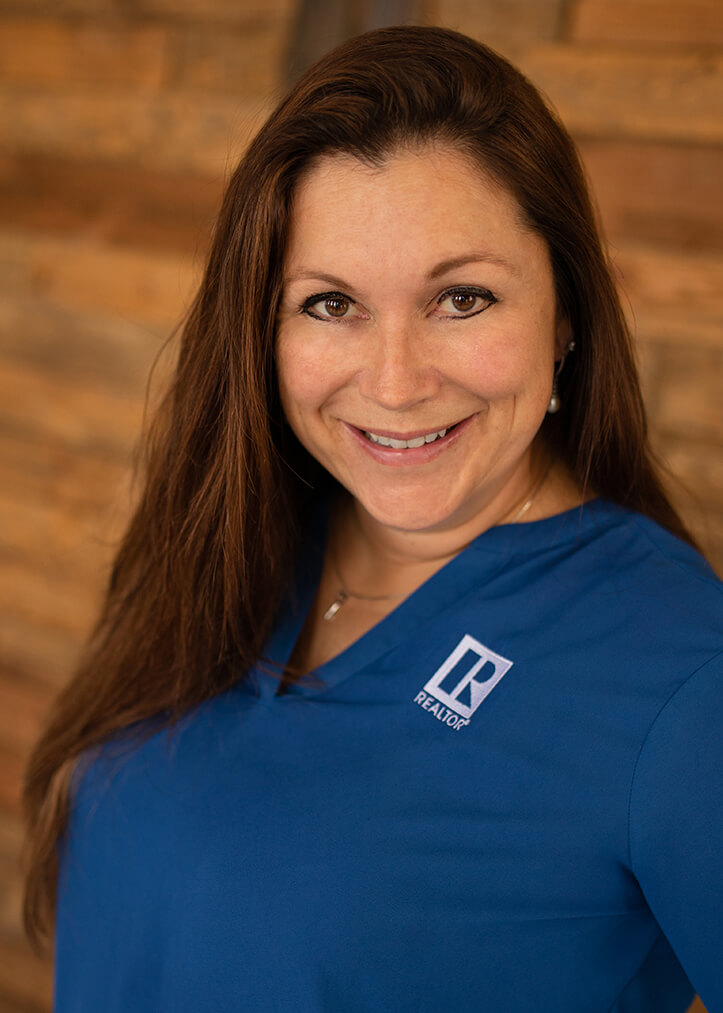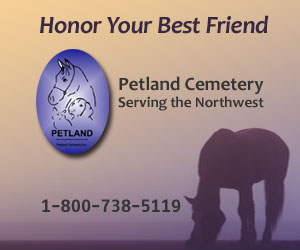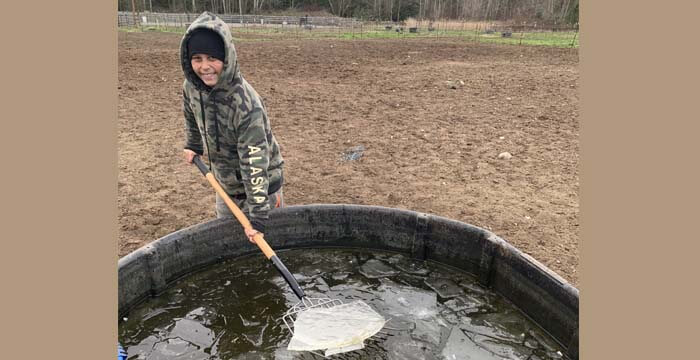This morning it was a balmy 27 degrees at the barn. In the Pacific Northwest, we worry about mud management during the winter months, often forgetting about freezing temperatures until they are upon us. My horsey childhood in Alaska was spent more than half the year in the dark and cold of winter, so I’m no stranger to inclement weather.
I think one of the primary differences here is that many horsey folks are either inexperienced, or like me, unprepared when freezing temperatures hit.
Water Freezes
In the PNW that means no mud! I look forward to freezing temperatures for this reason. It’s often sunny, crisp, and cold and horses get more freedom outside of the sacrifice areas during this time. Be mindful of jagged, frozen mud. Fresh horses turned out on frozen ground are subject to sole bruises and abscesses if they aren’t cautious.
The worst part of winter weather is frozen water troughs, hoses, and pipes. Horses can handle many things, except lack of water. Colic rates rise when temperatures drop from decreased water intake. Monitor how much horses are drinking, and it’s never a bad plan to add extra fiber and electrolytes.
When there’s icy weather in the forecast, have a plan. Always detach and drain hoses after every use and bring them inside. I also like to keep a dry backup hose in case of emergency. I keep heat tape on hand in the event my frostless hose bib fails. I have learned that if I wait until I need any emergency supplies, stores around here sell out quickly to all the other poor planners.
Check all waterers often. There are electric water heaters that are good for large, outside, water tanks. I am always a little nervous about electricity and water. It was rumored that one of my horse’s sires was killed when a tank heater shorted out. I personally opt for breaking ice in water buckets morning and night. When doing this, it’s crucial to remove the pieces of ice from the bucket so that it doesn’t just freeze thicker around the broken chunks. I just use a clean pitchfork and sledgehammer. I do keep a couple tank heaters on hand in case the weather stays bad for extended time.
Stock Up
In our area, we get a frigid northeastern wind off the Canadian Rockies that can bring severe winter weather. When this happens roads and stores close and it can be treacherous to travel. We have seen extremely high winds in the past couple of years bring down trees and cause power outages that last for days. Stock up on supplies in advance. Have plenty of hay and grain and have enough water to support the herd for a couple of days in the event of water loss.
Keep Warm
If horses are allowed to grow a winter coat, they do very well in dry, cold weather. Because we see a lot of rain in the PNW, horses need to be able to get dry to stay warm. This can come from shelter or blanketing/sheeting. I let my horses grow hair in the winter now that I’m not showing and use rain sheets for wind and rain protection. Horses don’t do well in high winds. It’s important that they have some sort of wind shelter and if they are blanketed, make sure all straps are fastened.
Body heat from digestion is one of the best ways to keep horses warm. Supplementing additional grass hay between feedings is a good way to provide extra warmth and prevent weight loss.
Barns and space heaters don’t mix. Resist the urge to heat the tack room, it simply isn’t worth the risk.
Batten Down the Hatches
I try to make sure that my barns are battle ready in the fall, before the weather hits. I know that I have to anchor the sliding doors on my barns during high winds. Here, lean-to sheds must face the west and must be anchored to the ground if they aren’t pole structures. I learned this the hard way, (embarrassingly) more than once, as my Noble sheds were picked up by the wind and dumped on their noses.
Have a mental checklist of the things that need to be done every evening. There’s enough work to be done in bad weather without compounding the process with avoidable problems. Plan ahead!
Wishing you all a very happy, horsey new year!

Allison Trimble is a Realtor® specializing in equestrian properties, farm and ranch properties, and residential real estate. She’s a former horse trainer, and a current owner, breeder, and non-pro competitor in cow horse and reining events. For many years, Allison wrote a monthly column for The Northwest Horse Source.
Learn more at www.allisonblakerealestate.com






